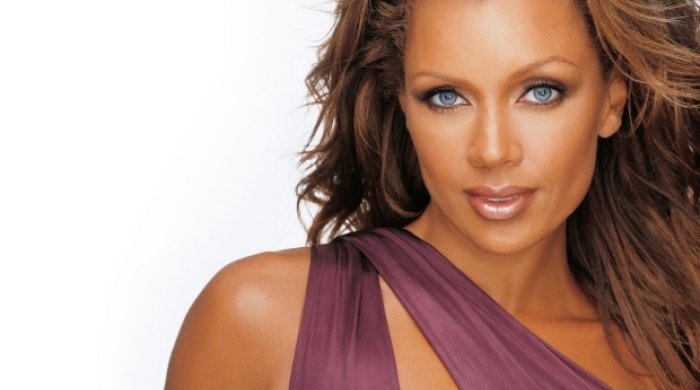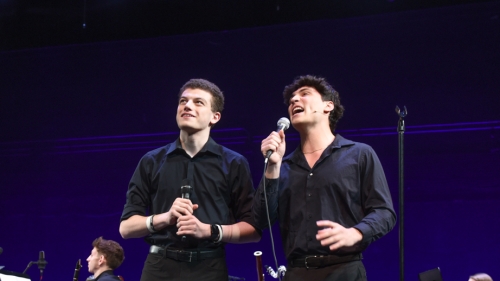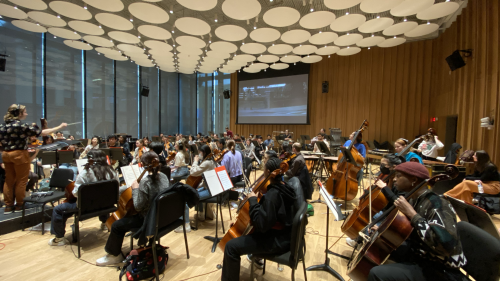Errik Hood, clinical assistant professor in the Department of Music and Performing Arts Professions, is a baritone and teacher who has distinguished himself as an interpreter of early 20th-century British classical repertoire through his international and Carnegie Hall solos of Ralph Vaughan Williams’ Sancta Civitas and Dona Nobis Pacem. His research interests include functional cross-training of singers, the intersection of long-form improvisational comedy and voice pedagogy, and collegiate/independent studio voice teacher collaboration. He has performed with opera companies and orchestras nationwide and abroad.
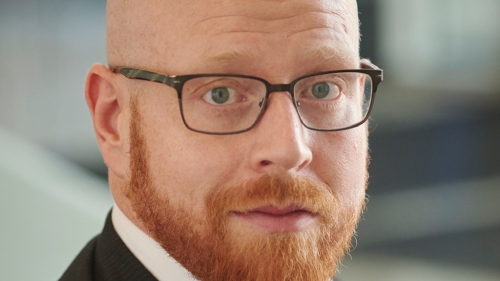
Tell me about your passion for opera. When did you discover your love for the form?
I had limited exposure to opera in my youth, and it wasn't really until college that I began connecting with the art form! During the first semester of my first year of undergraduate work (initially as a choral music education major), my voice teacher told me that the school's production of Mozart's Le Nozze di Figaro needed more male chorus members. Never one to turn down an opportunity to be on stage, I happily signed up. After my first rehearsal, I was immediately hooked. I auditioned for (and was cast in) every opera that was mounted during my undergraduate studies and also joined the local professional opera chorus. Later, when I was pursuing my masters degree, I was afforded the opportunity to sing the title role in that very same piece and it remains my favorite opera to this day. I love opera because, along with musical theatre, it requires the combination of so many art forms and disciplines (instrumentalists, costumers, set designers, singers, stage directors, choreographers, dramaturgs...the list goes on and on). Unlike musical theatre, however, opera demands that its singers convey the beauty and nuance of the text, the music, and the vocal mechanism, to the audience without electronic amplification. Opera takes a herculean collaborative effort of people at the height of their various crafts to succeed...and when it does, it is truly exhilarating.
I am constantly overwhelmed with the ability of art that is so far removed from our modern lives to move and inspire its audience."
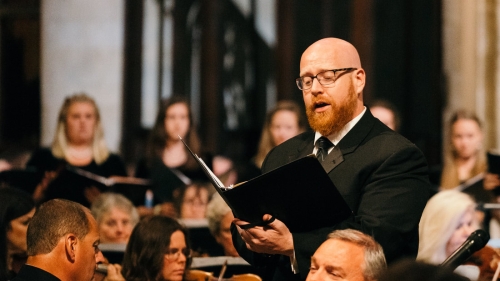
Errik Hood sings a solo for Ralph Vaughan Williams' Dona Nobis Pacem at the Great Britain Choral Festival at Ely Cathedral Summer (2018).
What is it like to perform a new opera? How does the experience differ from classical opera for the performer or teacher?
This is such a great question! New opera is so exciting because it incorporates innovations of vocalism, musical language, dramatic elements, and technical design. It stretches its performers and audiences beyond their current understanding of what opera is, and encourages growth for the art form itself. Additionally, working on new operas gives performers the chance to collaborate with the composers and librettists, so the performers often contribute to the evolution of the piece or its performance practices. That is a really exciting process. Operas that are a part of the standard repertoire present their own unique challenges. Performers must bring to life music that has existed for centuries, frequently centering on dramatic themes that are completely outdated and, at times, problematic for our modern sensibilities. Examining these incredible works of art and finding a way to make them fresh, relevant, and socially acceptable while still honoring the original intent of the works' creators is a difficult balancing act. When this is achieved, however, I am constantly overwhelmed with the ability of art that is so far removed from our modern lives to move and inspire its audience.
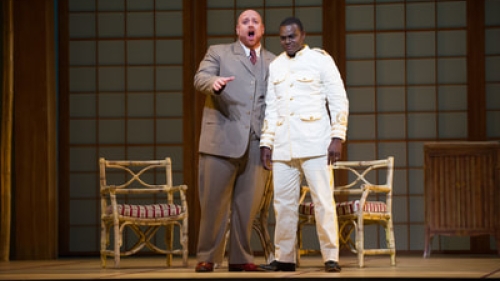
Errik Hood as Sharpless in Puccini's Madama Butterfly (Utah Festival Opera Summer, 2017)
How has the pandemic changed your artistic life and your teaching?
Like so many of my friends and colleagues, I have had MANY live performances postponed or canceled outright. Presentations at professional conferences and other universities have been canceled, postponed, or transitioned to a virtual platform. My voice teaching, as well, has shifted entirely online. As a result, a lot of my research and development time has been dedicated to learning about the best technology and practices available to facilitate an equally effective voice lesson experience online as I work to create in person. While I think the temptation is to view teaching virtually as a limiting substitution for in-person instruction, I have endeavored to shift my focus to improving my teaching through exploring online voice lessons. I find myself talking less and watching/listening more. With the knowledge that the limitations of video conferencing will distort the sound I get from my students, I find myself relying more on motor learning theory concepts and the student's observations about the sounds and sensations. In short, teaching remotely has forced me to make adjustments to my teaching that benefit not only my current students, but my future face-to-face student interactions as well.
Related Articles
Vanessa Williams Named NYU Steinhardt's 2020-2021 Dean’s Scholar-in-Residence
Vanessa Williams, a multi-faceted performer who has sold millions of records worldwide, has been named NYU Steinhardt's 2020-2021 Dean’s Scholar-in-Residence.

